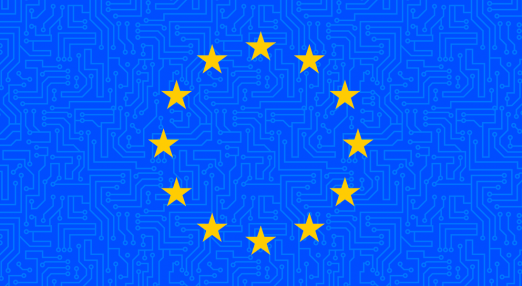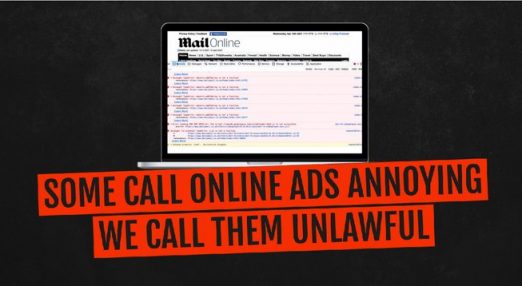EDRi joins the Tracking-Free Ads Coalition in the European Parliament
Today, European Digital Rights (EDRi) together with 25+ other organisations joins the Tracking-Free Ads Coalition, led by Members of the European Parliament, as supporters. The coalition is made up of a group of 19 Members of European Parliament committed to ending the pervasive tracking and data mining that has poisoned online advertising across every corner of the internet.
Filter resources
-

EDRi joins the Tracking-Free Ads Coalition in the European Parliament
Today, European Digital Rights (EDRi) together with 25+ other organisations joins the Tracking-Free Ads Coalition, led by Members of the European Parliament, as supporters. The coalition is made up of a group of 19 Members of European Parliament committed to ending the pervasive tracking and data mining that has poisoned online advertising across every corner of the internet.
Read more
-
Booklet: How online ads discriminate
The risks and harms that are associated with hyper-targeted online ads have been widely documented. Yet, the same amount of attention has not been shown to the many ways in which harms and risks of online advertising are unequally distributed, and how targeted online advertising can have discriminatory effects. This is the focus of EDRi’s newly launched report.
Read more
-

DSA should promote open and fair digital environment, not undermine the rule of law
The Rapporteur of the European Parliament Committee leading one of the most important legal initiatives to regulate platforms has spoken. The Internal Market and Consumer Protection (IMCO) Committee's draft report on the Digital Services Act (DSA) turns online platforms into judge, jury and executioner when it comes to removing online content. This follows the same logic as the Copyright Guidelines that were presented last week. It also gives vast powers to the European Commission and national governments to suppress opposing voices.
Read more
-

European Commission ignores civil society concerns and sides with creative industries
Today is a sad day for Europe. Instead of listening to reason and arguments, the European Commission itself brought up in front of the CJEU, the backroom political influence of the entertainment industry has won once again. Clearly “earmarking” content means preferring the economic interests of a few powerful actors over the fundamental rights of a whole generation.
Read more
-

DSA Proposal: Recommendations for the EU Parliament and Council
The Digital Services Act (DSA) is a mixed bag with some promising proposals, shares EDRi's member Electronic Frontier Foundation (EFF). In their "Recommendations for the EU Parliament and Council", they take a closer look at the substance of the DSA proposal and propose concrete suggestions for improvements.
Read more
-

Four measures to limit the dominance of platforms like YouTube and Facebook
For our public debate, we are far too dependent on the whims of dominant companies such as Google and Facebook. The time is nigh for politicians to step in, and here are four measures they should take.
Read more
-

AdTech is watching you!
The reality is that AdTech target mothers who just had stillbirths with baby ads, and serial gamblers who are trying to quit with gambling ads, or simply send creepy ads.
Read more
-

How Austria wants to implement upload filters and ancillary copyright
EDRi's member epicenter.works sheds light on the Austrian implementation of the controversial Copyright Directive passed in the EU Parliament in 2019. As positive as some draft provisions regarding upload filters are, the Austrian implementation of ancillary copyright is poor.
Read more
-

Dominant tech companies make their products incompatible deliberately
Imagine buying a new dining table from IKEA and although it’s a great table, it can only be used with IKEA-made chairs. For security reasons, the furniture maker tells you, the table is incompatible with chairs from third party vendors, sorry. Sounds ridiculous? Welcome to today’s online platform economy.
Read more
-

Anonymity is indispensable
Would an anonymity ban on social media be a good solution to counter all the hatred on these platforms? We were asked this question by a national newspaper in response to such calls. Here is the reaction. of EDRi's member Bits of Freedom.
Read more
-

Thousands Expected to Sue Facebook in Mass Action Against Privacy Breach
EDRi's member Digital Rights Ireland (DRI) will sue Facebook to recover damages for those affected by the recent breach of personal data by Facebook, a first for legal actions against tech companies in Europe. See how you can join the lawsuit if you were affected.
Read more
-

Buy a phone, get a tracker: unauthorized tracking code illegally installed on Android phones
EDRi's member noyb launched further action against Google’s AAID (Android Advertising Identifier), following similar complaints against Apple’s IDFA. The somewhat hidden ID allows Google and all apps on the phone to track a user and combine information about online and mobile behaviour. While these trackers clearly require the users’ consent (as known from “cookie banners”), Google neglects this legal requirement. noyb therefore filed a complaint against Google’s tracking code AAID.
Read more
